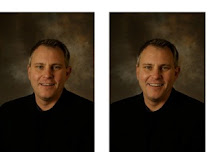Hello Ben, Phil, Paul, Mike,
In reflecting on our task, within the larger shifts of UMC polity and mission, I had a thought I want to put to the group. In light of the new rubric proposed by the Connectional Table to guide the budgeting and prioritizing of the General Agencies (including GBGM), would there be some merit in structuring our working discussion of core >competencies around the four focus areas of ministry? 1. Leadership formation 2. Congregational development 3. ministry with the poor 4. health issues. These four areas will be the guiding principles for visioning Methodist ministry globally for some time, and relating our discipline's best teaching practices to these institutional (missional?) communities seems both prudent and practical. (The Anglicans have published a book, edited by Andrew Walls, on the Mission of the church in the 21st century, using the organizing principle of the "Five marks of mission".)If our church has adopted these four ministry emphases, perhaps we could articulate a vision of mission education for lay and clergy leadership that relates or translates the wisdom we already teach in these areas, into language agencies and conferences are really trying to live into. A minimalist approach would be to simply find ways to organize competencies in these four areas as a heuristic device. Maximally, we could try to articulate a rationale for our competencies, our learned outcomes, "what we would like our students to be able to do at the end of the course" in ways that take these four areas seriously.
Here is a link to the connectional table with rationale: https://webmail.service.emory.edu/horde/services/go.php?url=http%3A%2F%2Fwww.umc.org%2Fsite%2Fc.lwL4KnN1LtH%2Fb.3896915%2Fk.E1AB%2FOur_Work.htm
I think we all probably teach mission courses with these emphases in our curriculum, but perhaps we could place our discipline on stronger institutional grounds by showing how Methodist mission education supports the larger goals of our denomination at the national and international level. I know we all have many other things on our plates these days, but I appreciate the chance to work with you all on this draft. I hope we can sharpen our thinking and strengthen our discipline in the process.
best wishes,
Bill Daniel
-----------------------------------------------------------
Bill,Thanks for getting this started. I like the idea of chosing some guiding areas or focal points for developing mission education. I assume that church planting and church growth would come under heading # 2. Congregational Development. I would think that, somewhere in the mix and to keep a Wesleyan balance in order to keep both ends of the church spectrum in the game, we should name Evangelism somewhere among the goals of mission. Secondly, while "health issues" is significant, I wonder if abroader category that would include health, education and economic development (including micro-economic development, community organization, capacity building) might not be more appropriate.
Cheers,Mike
Michael A. RynkiewichDirector of Postgraduate Studies, Professor of Anthropology (:-{>Asbury Theological Seminary, 204 N. Lexington Avenue, Wilmore, KY 40390859-858-2218, fax ...2025
Blog Archive
Subscribe to:
Post Comments (Atom)

1 comment:
Hi Mike, and of course the rest of the crew,
Thanks for your response to my suggestion about anchoring our core competencies and learning out-comes into the Connectional Table rubric. It does seem that we need to infuse these four categories with the nuances that our missiological field can embrace. To point, by placing our evangelistic teaching within the context of the UMC's goal of leadership formation is one way to put teeth into that task. It makes sense to relate evangelism to congregational development as well. It does raise the philosophical question, how does evangelism relate and regulate the multiplicity of ministry tasks (and our pedagogical task) within the broader Wesleyan notion of mission? Both mission and evangelism relate and regulate all four areas, leadership formation; congregational development; justice for the poor; and health. I would welcome any thoughts on this.I do agree with you, if we are going for an organizing rubric, we should expand heath to include education. Economic development and community transformation are also clearly linked to the task of serving the poor and empowering them as well, because poverty is a disease, a health threat, whose primary "medicine" is education. Again, in our global Christian vision shaped by missiological practices, all of these categories driving UMC institutional policy, and our teaching, should find some measure of overlap and linkage.
On another note, I wanted to invite you Mike, and the others in our sub-group as well, to take a look at the beta-test blog site I promised to set up for our group, United Methodist Professors of Mission. The site is:http://umprofessorsmission.blogspot.com/(You will need to register I think to sign in and post, but it is simple and free, requiring only your e-mail address and a chosen password.)I want to let our sub-group see work with it first. Let me know if it is useful in its current form for exchange of ideas around our working draft, and/or helpful as a place to archive some of the more important concepts we are working on together. There is also a link to Nuessle's Academy of Missional Renewal, and the entire Seminary Task Force document at the bottom of the blog for reference.
Once you guys sign in, you can critique and even rearrange the format and help me improve its usefulness, before we release it to the wider group. I am new at creating a blog, so let me know how I can improve it to be a useful support to our group going forward.Any thoughts on how we can take the first step towards drafting a document in a helpful format for Atlanta?
best wishes and thanks for all the ideas and the good conversation,Bill Daniel
Post a Comment